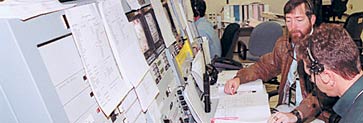
By Dougals R. Teany
When president Gerald Ford appointed Donald Rumsfeld as his Secretary of Defense in 1975, Rumsfeld became the youngest defense secretary in U.S. history. Today, as defense secretary for President George W. Bush, Rumsfeld is the most senior appointee to hold that post. Between political assignments, he became an expert at turning around troubled corporations. His work at G.D. Searle — now a subsidiary of Pharmacia — earned him awards as an outstanding chief executive officer in the pharmaceutical industry.
Rumsfeld’s management philosophy is unique and direct, and the best part is he’s written it down. While serving in the Ford administration, Rumsfeld wrote a white paper titled Rumsfeld’s Rules. These rules were written as guiding principles for White House staff. First published in 1980, the rules were revised and expanded in 2001 to include broader insights on management, work and leadership. They reflect more than 40 years of Rumsfeld’s wisdom and experience. A while back, I received a copy of the updated rules. After several months, I picked it up and started reading. I couldn’t believe how applicable Rumsfeld’s Rules are to project management and leadership.
RUMSFELD’S RULE #50: Don’t be a bottleneck. If the matter is not a decision for the President or you, delegate it. Force responsibility down and out. Find problems areas, add structure and delegate. The pressure is to do the reverse. Resist it.
Application for the project manager — High-performance work teams are comprised of competent, empowered individuals who have a solid understanding of roles, responsibilities and structure. When team members participate in the decision-making process, they gain a broader understanding of how their work affects others. This understanding enables individuals to make sound decisions within defined boundaries. Project managers should continually assess their decision-making style, use a participative approach and delegate decisions whenever possible. Consider defining roles and responsibilities to include accountabilities. Each individual’s accountabilities will set decision-making boundaries.
RUMSFELD’S RULE #94: Reserve the right to get into anything and exercise it. Make your deputies and staff realize that although many responsibilities are delegated, no one should be surprised when the Secretary engages an issue.
Application for the project manager — Effective application of Rule #50 will create faster, more efficient work. Unfortunately, the faster work is done, the more opportunity there will be for mistakes and issues.When issues arise, the project manager should lean towards action. If you have an opportunity to do something about an issue, take appropriate actions immediately. Pick up the phone — don’t wait for the next scheduled meeting. Roles and responsibilities are delegated on projects; leadership is not.
RUMSFELD’S RULE #57: Control your time. If you’re working off your in-box, you’re working off the priorities of others. Be sure the staff is working on what you move to them from the President, or the President will be reacting, not leading.
Application for the project manager — For project managers, the top priority should be setting and communicating direction. Regularly communicate team priorities, linking priorities to the specific work of individual team members. A manager should determine how frequently communications should occur and what method (e.g., email, meeting) works best for the team. Whatever the frequency and method, be explicit about who is to complete what by when. A disciplined approach to this process will enable the project manager to proactively remove obstacles that may interfere with achieving project objectives.
RUMSFELD’S RULE #38: If you are lost — “climb, conserve, and confess.” (U.S. Navy Flight Manual).
Application for the project manager — Project managers must learn that it is completely acceptable to say, “I don’t know.” Once they become comfortable with this, they typically find themselves saying these words quite often. Many issues require time, patience and perception. It is easy for project teams to develop a narrow focus, one that is directed towards work activities, deliverables and milestones. This makes it difficult to step back and gain the perspective needed to make sound decisions.When you feel lost, pull out of day-to-day project tasks, slow work if necessary and seek advice. Collect feedback from colleagues and subject matter experts. The downstream work required to undo bad decisions ranges from 10 to 100 times the cost of doing it right the first time.
RUMSFELD’S RULE #48: Don’t allow people to be excluded from a meeting or denied an opportunity to express their views because their views differ from the President’s, the person who calls the meeting, or your views. The staff system must have integrity and discipline.
Application for the project manager — Project managers must be responsible for applying discipline to the participative decision-making process. Not every decision requires consensus, but every decision requires a strong sense of ownership. People support what they own. Individuals with differing viewpoints should be included, not excluded. Engaging the right people on the right topics is key to project success.
RUMSFELD’S RULES #34 & 35: Know that the amount of criticism you receive may correlate somewhat to the amount of publicity you receive. And, if you are not criticized, you may not be doing much.
Application for the project manager — Complex projects often draw the spotlight because they affect many people. Any time that happens, criticism follows. When leading a project, you quickly make allies and enemies. Effective leaders keep their emotions in check, even when those around them do not. Anger and frustration should be expected. It is how these emotions are managed that is important. Aristotle once remarked, “Anyone can get angry, that is easy. But to be angry with the right person, to the right degree, at the right time, for the right purpose and in the right way — that is not so easy.” Don’t allow criticism to derail project progress. Instead, maintain composure, remain focused on achieving project goals and learn to recognize and manage the emotions of critical stakeholders.
RUMSFELD’S RULE #58: Look for what’s missing. Many advisors can tell a President how to improve what’s proposed or what’s gone amiss. Few are able to see what isn’t there.
Application for the project manager — Leading projects requires you to think outside the box — to think differently and to revisit questions and problems. In How to Think Like Leonardo da Vinci, Michael Gelb notes that da Vinci’s creativity was due, in part, to his ability to reframe difficult questions. Reframing questions — approaching the question in different ways, from different angles — will dramatically increase your ability to identify unique solutions. As a project manager, think about questions from your sponsor’s perspective, your team’s perspective, the controller’s or accountant’s perspective and your client’s perspective; think beyond the project to the process and quality implications. Make it a habit to consider, think and rethink potential solutions to difficult project questions, taking the time to look for what may be missing.
RUMSFELD’S RULE #14: Amidst all the clutter, beyond all the obstacles, aside from all the static, are the goals set? Put your head down, do the best job possible, let the flak pass, and work towards those goals.
Application for the project manager — All projects should begin and end with a focus on goals, a clear definition of what it means to be “done” with the initiative. This completion criterion should become “true north” for the team. It is the project manager’s responsibility to establish and maintain that focus. During planning, define project goals as a team. During execution, continually revisit those goals.Team members often operate on different assumptions without realizing it. Failure to focus on goals will lead to a disconnect between what a project should be doing and what it is actually doing.
The project manager must think like a manager and act as mentor and coach. As anyone who has tried will tell you, that is not a simple role. Drawing on Rumsfeld’s experience and counsel can help leaders achieve focus and results. Keep these rules handy, review them often, and don’t be afraid to exercise Rule #38.
Search by lesson to find more on:
- Leadership
About the Author Box at end of Article







